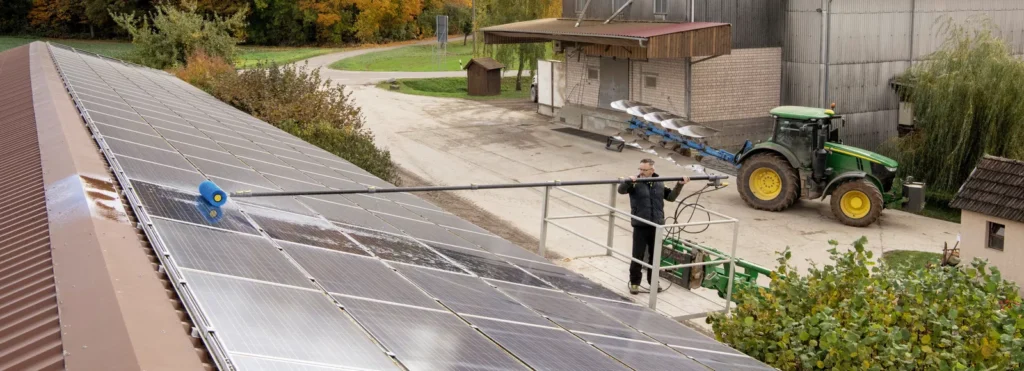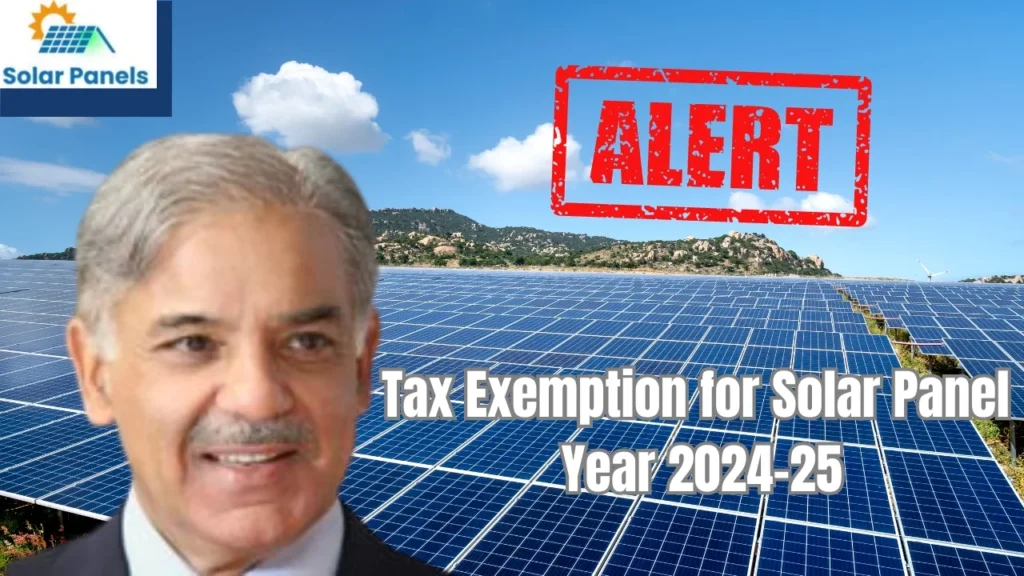Solar Panel Cleaning
Clean panels regularly, and not just for their appearance. Dirt and pollution can reduce electricity production by up to 30%.
Overall, professional cleaning is necessary, and this does not just apply to solar collector surfaces. Deposits build up at the junction between the glass and frame, which can cause soot and stains to form over a wide area over time.
Proper cleaning of solar panels requires proper cleaning techniques due to the high amount of soil. Modules are often mounted on rooftops at a 45° steep angle, so take steps to ensure operator safety.

How To Clean Solar Panels On The Roof?
Proper planning and safety measures are necessary while cleaning rooftop solar panels. This tutorial will help you properly clean your rooftop solar panels.
Cleaning solar panels is crucial for maintaining their efficiency and maximizing energy output. As time passes, dirt, dust, bird droppings, and other types of debris can build up on the panels, hindering their capacity to capture sunlight.
Here’s a general guide to cleaning your solar panels:
Tools & Materials:
- Soft cloths or microfiber towels
- Squeegee
- Non-abrasive sponge or brush
- Water hose with gentle pressure
- Mild dish soap (optional)
- Bucket
Steps to Clean Solar Panels:
- Safety First: Make sure to prioritize your safety when washing solar panels. If the panels are on the roof, use appropriate fall protection equipment or hire a professional.
- Check the Weather: Wash your solar panels on a cool, cloudy day or early in the morning when the panels aren’t hot. Cleaning them while they’re heated can result in streaks or cracking.
- Turn Off the System: If feasible, deactivate the solar power system before cleaning to help avoid electrical hazards.
- Rinse with Water: Utilize a hose that emits a soft flow of water to wash away loose dirt, dust, and debris. Steer clear of high-pressure water, as it may harm the panels.
- Clean with Soft Materials: Moisten a gentle cloth, sponge, or brush with soapy water (a mix of mild dish soap and water) and softly clean the panels. Steer clear of abrasive materials that might damage the surface.
- Use a Squeegee: Once you’ve finished cleaning, utilize a squeegee to eliminate any excess water from the panels.
- Final Rinse: Rinse the panels again with clean water to remove any soap residue.
When to Clean Solar Panels:
- If you live in an area with high dust or pollen: Clean every few months.
- If there are bird droppings or heavy dirt buildup: Clean as needed.
- If it rains frequently: The rain might be enough to keep the panels clean.
When to Hire a Professional:
- If the panels are too high or difficult to reach.
- If you’re unsure about using the right cleaning tools or techniques.
- If there are significant damages or issues with the panels.
Solar Panel Cleaning Equipment
To improve the protection of solar panels, it is very important to do regular cleaning. The dust, dirt, etc. got cleaned. There are three types of Cleaning Brushes, High-Pressure Water Guns, and Solar Panel Cleaning Machine to clean solar panels.
- Solar Panel Cleaning Brushes:
Solar panel cleaning brushes have become a novel method for fixing these issues. These brushes are an environmentally responsible choice because they are specifically made to clean dust and dirt from solar panels efficiently and without the use of chemicals or water. Usually made of soft bristles attached to extending poles, they enable workers to safely access and clean the panels from the ground. There are many types of brushes like soft, wire, and sponge brushes.
- High-Pressure Water Guns:
- Efficient Cleaning: Solar panels can be restored to their optimal performance by using high-pressure water guns to wash away difficult debris and soil.
- Time-Saving: Cleaning solar panels with a high-pressure water gun is faster than traditional methods, saving time and effort.
- Improved safety: High-pressure water guns can reach high areas without the need for ladders or supports, reducing the risk of accidents.
Benefits of cleaning solar panel
Here are some benefits of cleaning solar panels in South Africa:
- Increased Performance: As a result of better cleaning, solar panels now generate more electricity and are more efficient.
- Safety: Safe work practices are taught to professional cleaners, lowering the likelihood of mishaps.
- Long life: Regular maintenance can help solar panels last longer by finding possible issues early on.
- Special equipment: Expert cleaning services possess the necessary equipment to complete a thorough task without causing any harm to the panels.
- Better energy production: Cleaning maximizes energy production, thereby saving costs on your electricity bill.
Conclusion
And last, maintaining a solar panel system’s efficiency and lifespan requires regular cleaning. Regular cleaning can minimize energy losses, increase energy production, and stop damage from particles and dirt collection. By understanding the benefits, range of cleaning methods, and ideal methods, people and companies can ensure maximum efficiency from their solar panels. Remember to regularly clean your solar panels whether you choose to hire an expert or do it yourself in order to get the most out of your investment in renewable energy.
FAQ’s
Do solar panels need to be cleaned?
Although solar panels are an accessible green investment, materials like mud, bird droppings, and snow can cause performance losses. To avoid this, regular cleaning is important.
What is the best time of day to clean solar panels?
As a result, when the temperature of your solar panels is between 60 and 70 degrees, the best time to clean them is in the evening or early morning.
What soap to wash solar panels?
Dish soap and a soft sponge or rag are recommended for cleaning solar panels, but avoid harsh agents like bleach and rough brushes to avoid damaging them.


